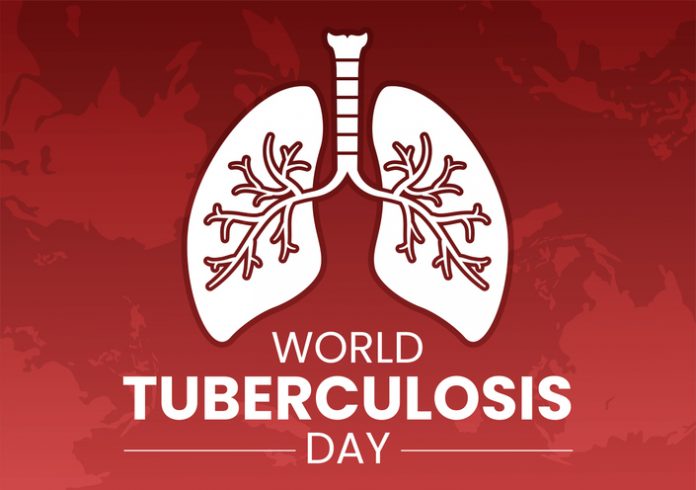As a ‘Progress Snapshot’ is unveiled at a parliamentary breakfast today to mark World Tuberculosis Day (March 24), there is renewed hope the deadly disease can be eliminated in the region with increased funding, according to Results International (Australia).
With progress getting back on track from COVID-19 setbacks, the snapshot analysis by Results International (Australia) reveals deaths have declined across several countries in Asia and the Pacific between 2021 and 2022.
Amid COVID-19 disruptions, TB deaths rose globally after more than a decade of decline but that trend is reversing as testing and treatment increases.
The snapshot shows an increase in diagnoses ranging from 22 per cent and 64 per cent in the Philippines, PNG, Indonesia, Vietnam, Timor-Leste and Cambodia between 2021 and 2022, enabling more people to seek treatment.
There have also been huge gains in people starting treatment in Asia and the Pacific. For example, in Indonesia, about four times as many people began TB preventive treatment in 2022 than the year before.
It comes as the federal government announces $17 million for TB Alliance and partners to develop more effective treatments for TB and help ensure they reach the communities who need them.
Results International (Australia) CEO Negaya Chorley said: “We welcome the Australian Government’s funding boost for the next generation of tuberculosis treatment. This investment will help develop more effective treatments, support Australia’s neighbours to strengthen their health systems, and make a difference in the fight against TB.
“Tuberculosis is preventable and curable but remains one of the world’s deadliest infectious diseases that kills someone on average every 20 seconds.
“While TB is rare in Australia, it remains a threat. Over the past year, clusters of outbreaks have emerged in Australia, while TB remains at crisis levels for many of our neighbours in Asia and the Pacific.
“There is still a way to go to eliminate TB globally but it is entirely possible as recent progress has shown. During the early COVID-19 years, TB deaths rose for the first time in more than a decade as the new pandemic derailed global gains in the fight against TB but we are getting back on track as deaths decline, and testing and treatment rises.
“The progress made in Asia and the Pacific in just one year proves that dedicated resources and funding, including from Australia, is paying off. But we need to build on this momentum if we want to reach global targets and turn the renewed hope of ending TB by 2030 into a reality.
“By 2050, it is projected that a return of US$40 will be realised for every dollar invested in TB research and responses. We welcome the Australian Government’s funding to date, but we encourage Australia to go the extra mile by mobilising additional funds to continue improving TB prevention, diagnosis, treatment, and research in our region.”
Results International (Australia) calls on the Australian Government to continue to:
- Increase investments in TB research and development (R&D) for improved treatments, better diagnostics and a more effective vaccine
- Support partners in PNG to strengthen the health system and reduce drug and workforce shortages
- Step-up in countries of Asia and the Pacific to accelerate TB control efforts and health system strengthening, particularly to support TB-affected communities.
“The investments and efforts made today will dictate whether TB can end by 2030. Meeting this goal is within reach, and the governments of today, including Australia, can be part of this history-making feat.
“When you are fighting an epidemic and one of the biggest diseases of poverty, standing still is not an option.”
Key facts and figures:
- Everyday, close to 4,400 people die from TB, including 600 children.
- Australia’s rates of TB remain extremely low by global standards with around 5.6 new cases for every 100,000.
- Since May 2022, cases of TB have been identified in some Aboriginal communities in South Australia. SA Health is leading a public health response with communities in the APY Lands to facilitate quick testing and treatment.
- More than 60 per cent of the global TB burden is in Asia and the Pacific.
- COVID-related disruptions resulted in about half a million excess deaths from TB.
- Globally in 2022, TB caused an estimated 1.3 million deaths, down from best estimates of 1.4 million in both 2020 and 2021. That is almost back to the level of 2019.
- There’s been a global recovery in the reported number of people newly diagnosed with TB. 7.5 million people were newly diagnosed in 2022, the highest number for a single year since WHO started global TB monitoring in the mid-1990s.
- Worldwide, an estimated 10.6 million people developed TB, up from best estimates of 10.3 million in 2021, and 10 million in 2020.
- Funding for essential TB services is still down since 2019, and is reaching less than half the global target.






